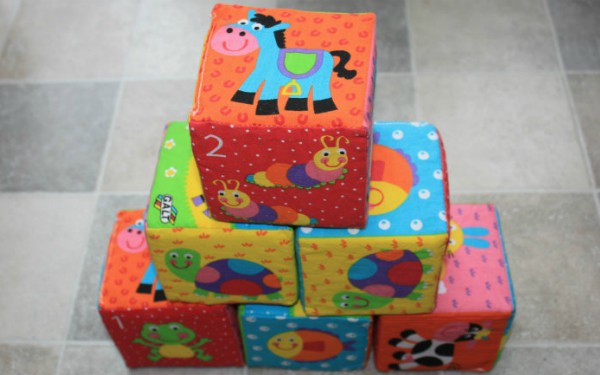
 This article comprises of excerpts taken from a guide to child development on Community Care Inform Children. The guide is written by Helen Cowie, emerita professor at the University of Surrey in the Faculty of Health and Medical Sciences. Inform subscribers can find the full guide and other guides to child development at different ages on Inform Children.
This article comprises of excerpts taken from a guide to child development on Community Care Inform Children. The guide is written by Helen Cowie, emerita professor at the University of Surrey in the Faculty of Health and Medical Sciences. Inform subscribers can find the full guide and other guides to child development at different ages on Inform Children.Communication
Adult discourse with the child is of crucial importance, whether in everyday communication or during story-reading and play.
By 24 to 27 months, the child is regularly producing three and four-word utterances. Their sentences are condensed and telegraphic (where meaning is condensed into short utterances) but there is evidence that they already understand some of the grammatical rules of their language.
Some sentences remain ‘ungrammatical’ but research indicates (eg Tomasello, 2000) that these are often logical errors since the child is applying rules, for example, in the use of the plural as in “mouses” or “sheeps” or in the use of the past tense, as in “I drinked”. By three years, speech is for the most part understandable to adults, whether in the family or outside in the community. Vocabulary by 36 months is around 1,000 words, sentences are longer and reasonable conversations are possible.
The mind-minded parent treats their child from the earliest years as a person with a mind. Such parents show sensitive attunement to the child’s inner thoughts and experiences, for example as shown in their imaginative play.
Learning through play
Adults continue to play an important role in stimulating play, creating a playful atmosphere and taking an interest in the child’s games. This enables the child to feel free to explore and discover at their own pace.
Toys play a crucial role in helping children to understand social rules, including gender awareness and the understanding of what is appropriate in the child’s social and family community. For example, Bruce (2010) recommends the use of puppets in nursery school to model such qualities as active listening and to help children reflect on their feelings. In one case, she introduced two puppets, Walt, a friendly green dragon, and Wilf, a cheeky wee boy. She began the lesson with a story about how the two puppets were feeling that day.
This was followed by a discussion about how the children would welcome the puppets into their games and help them deal with their feelings. The children quickly began to communicate through the puppets.
Play helps the child develop socially, emotionally and cognitively. By around two to three years, children develop a strong interest in constructive play with objects, stacking bricks, putting cups of different sizes in order, solving jigsaw puzzles, sorting toys and objects by colour, size and shape.
Sometimes play is a solitary activity and at other times it involves other children and adults. Social play with objects further develops intersubjectivity, or shared attention, a process that plays an important part in developing the child’s capacity to be aware of the thoughts and intentions of others.
Cultural cognition
These enjoyable, everyday experiences are crucial in forming the child’s cultural cognition. From around two years onwards, the child typically develops scripts to accompany pretend play and will enact stories about themes like shopping or cooking.
By three years, the child frequently engages in socio-dramatic play with other children where they act out roles, such as mummy and daddy, doctor and patient, pupil and teacher, princes and princesses, monsters and spacemen. By three to four years, children are able to adopt different roles and create a range of characters with different personalities and actions, often accompanied by dialogues enacted with appropriate differences in pitch and intonation. They also make playful use of language. Pre-schoolers love to tell riddles and jokes.
Where children have had deprived or disadvantaged backgrounds, there is evidence that their play is less complex and less frequent. Interventions such as play tutoring, enhanced by the provision of interesting toys, dressing-up clothes and other props, can compensate, as indicated by such studies as Leevers and Harris (1999) though later researchers (Smith, 2010) argue that general adult intervention and conversation with the children can be as beneficial as play tutoring in itself.
More on child development
References
Bruce, C (2010)
Emotional Literacy in the Early Years
London: Sage
Leevers, HJ and Harris, PL (1999)
Persisting effects of instruction on young children’s syllogistic reasoning with incongruent and abstract premises
Thinking and Reasoning, 5, 145-173
Smith, J (2010)
Talk, Thinking and Philosophy in the Primary Classroom
Exeter: Learning Matters Ltd
Tomasello, M (2000)
Do young children have adult syntactic competence?
Cognition, 74, 209-253



 Bournemouth, Christchurch and Poole
Bournemouth, Christchurch and Poole  Hampshire County Council
Hampshire County Council  Oxfordshire County Council
Oxfordshire County Council  South Gloucestershire Council
South Gloucestershire Council  Wokingham Borough Council
Wokingham Borough Council  Harnessing social work values to shape your career pathway
Harnessing social work values to shape your career pathway  Webinar: building a practice framework with the influence of practitioner voice
Webinar: building a practice framework with the influence of practitioner voice  ‘They don’t have to retell their story’: building long-lasting relationships with children and young people
‘They don’t have to retell their story’: building long-lasting relationships with children and young people  Podcast: returning to social work after becoming a first-time parent
Podcast: returning to social work after becoming a first-time parent  How managers are inspiring social workers to progress in their careers
How managers are inspiring social workers to progress in their careers  Workforce Insights – showcasing a selection of the sector’s top recruiters
Workforce Insights – showcasing a selection of the sector’s top recruiters  Empowering people with Parkinson’s to lead fulfilling lives
Empowering people with Parkinson’s to lead fulfilling lives 

 Facebook
Facebook X
X LinkedIn
LinkedIn Instagram
Instagram
Comments are closed.